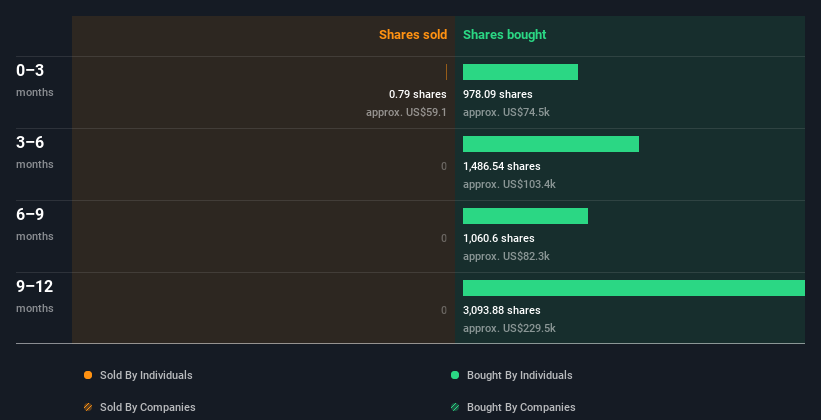Have Insiders Been Buying Consolidated Edison, Inc. (NYSE:ED) Shares This Year?
We've lost count of how many times insiders have accumulated shares in a company that goes on to improve markedly. The flip side of that is that there are more than a few examples of insiders dumping stock prior to a period of weak performance. So shareholders might well want to know whether insiders have been buying or selling shares in Consolidated Edison, Inc. (NYSE:ED).
Do Insider Transactions Matter?
Most investors know that it is quite permissible for company leaders, such as directors of the board, to buy and sell stock in the company. However, rules govern insider transactions, and certain disclosures are required.
Insider transactions are not the most important thing when it comes to long-term investing. But logic dictates you should pay some attention to whether insiders are buying or selling shares. As Peter Lynch said, 'insiders might sell their shares for any number of reasons, but they buy them for only one: they think the price will rise'.
See our latest analysis for Consolidated Edison
Consolidated Edison Insider Transactions Over The Last Year
Over the last year, we can see that the biggest insider purchase was by Senior VP & CFO Robert Hoglund for US$143k worth of shares, at about US$71.65 per share. That means that an insider was happy to buy shares at around the current price of US$77.23. That means they have been optimistic about the company in the past, though they may have changed their mind. If someone buys shares at well below current prices, it's a good sign on balance, but keep in mind they may no longer see value. The good news for Consolidated Edison share holders is that insiders were buying at near the current price.
Over the last year, we can see that insiders have bought 6.62k shares worth US$484k. But insiders sold 0.79 shares worth US$58.6. In the last twelve months there was more buying than selling by Consolidated Edison insiders. The chart below shows insider transactions (by companies and individuals) over the last year. If you want to know exactly who sold, for how much, and when, simply click on the graph below!
There are always plenty of stocks that insiders are buying. So if that suits your style you could check each stock one by one or you could take a look at this free list of companies. (Hint: insiders have been buying them).
Consolidated Edison Insiders Bought Stock Recently
At Consolidated Edison,over the last quarter, we have observed quite a lot more insider buying than insider selling. Insiders spent US$74k on shares. On the other hand, insider Robert Muccilo netted US$58.6 by selling. The buying outweighs the selling, which suggests that insiders may believe the company will do well in the future.
Insider Ownership of Consolidated Edison
For a common shareholder, it is worth checking how many shares are held by company insiders. A high insider ownership often makes company leadership more mindful of shareholder interests. Consolidated Edison insiders own about US$36m worth of shares. That equates to 0.1% of the company. We've certainly seen higher levels of insider ownership elsewhere, but these holdings are enough to suggest alignment between insiders and the other shareholders.
So What Does This Data Suggest About Consolidated Edison Insiders?
The recent insider purchases are heartening. We also take confidence from the longer term picture of insider transactions. Given that insiders also own a fair bit of Consolidated Edison we think they are probably pretty confident of a bright future. In addition to knowing about insider transactions going on, it's beneficial to identify the risks facing Consolidated Edison. When we did our research, we found 4 warning signs for Consolidated Edison (1 is a bit concerning!) that we believe deserve your full attention.
If you would prefer to check out another company -- one with potentially superior financials -- then do not miss this free list of interesting companies, that have HIGH return on equity and low debt.
For the purposes of this article, insiders are those individuals who report their transactions to the relevant regulatory body. We currently account for open market transactions and private dispositions, but not derivative transactions.
This article by Simply Wall St is general in nature. It does not constitute a recommendation to buy or sell any stock, and does not take account of your objectives, or your financial situation. We aim to bring you long-term focused analysis driven by fundamental data. Note that our analysis may not factor in the latest price-sensitive company announcements or qualitative material. Simply Wall St has no position in any stocks mentioned.
Have feedback on this article? Concerned about the content? Get in touch with us directly. Alternatively, email editorial-team (at) simplywallst.com.

